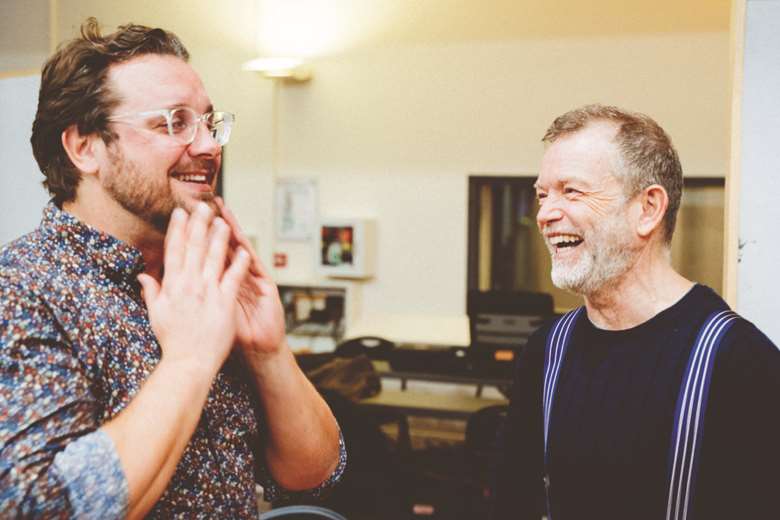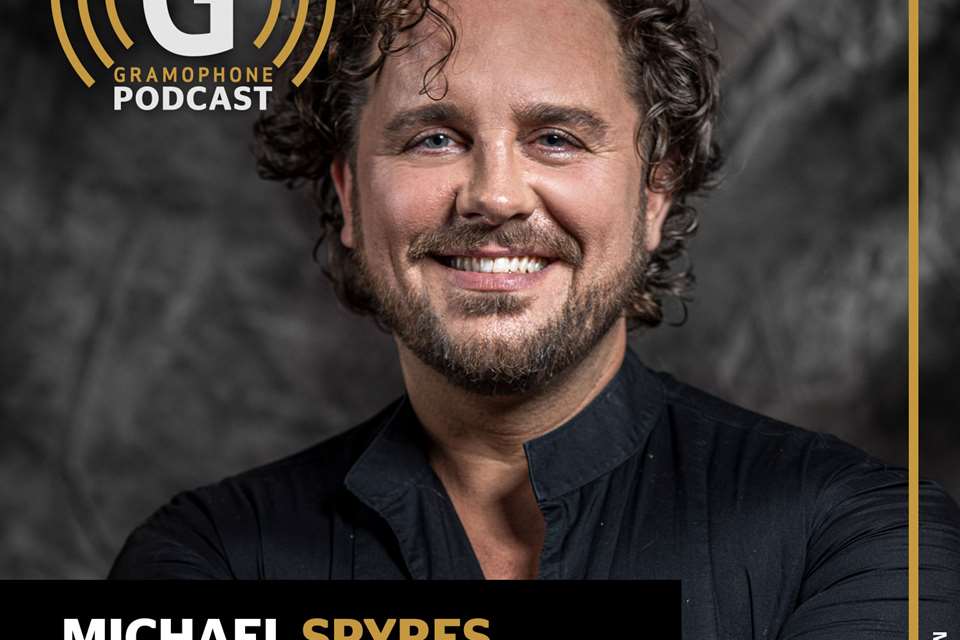Michael Spyres and Christophe Rousset reflect on their new album: In the Shadows
Friday, March 1, 2024
Spyres and Rousset introduce In the Shadows

In the Shadows, released today, is a new album from Michael Spyres and Christophe Rousset (with Les Talens Lyriques) that explores the musical landscape from which Wagner's operas emerged. It features music by Wagner himself, plus works by Méhul, Beethoven, Rossini, Meyerbeer, Weber, Auber, Spontini, Bellini and Marschner.
Here, both Spyres and Rousset take turns to reflect on the album, and the creative journey it took them on...
Michael Spyres
My journey to understanding Wagner has been long and fascinating. I began my career with Mozart and Rossini, then continued on to the bel canto of Donizetti and Bellini. Alongside bel canto, I started singing French Grand Opera with Meyerbeer, Gounod, and Berlioz. In more recent years, I have ventured into Baroque and verismo. My repertoire has been extremely varied, but only after years and much reading did I realize that I sang many operas that the young Wagner became enamored with, such as La Vestale, Fidelio, Norma, and La Muette de Portici, among many others.
As I delved deeper, I realized that great composers such as Bellini, Berlioz, Beethoven, and Spontini had a profound impact on Wagner's artistic evolution. Living in a time of societal and artistic upheavals, these composers were pioneers who pushed the boundaries of musical expression. Opera mirrored the changes in Europe, with historical incidents like the La Muette incident in Brussels allegedly sparking the Belgian Revolution. Wagner seemingly absorbed these influences, and in turn, they shaped his own path.
Wagner's fascination with earlier operas shines through in his vocal compositions, especially up to Tristan und Isolde. Beethoven's Fidelio, for instance, laid the foundation for Wagner's iconic Heldentenor, a role that would become central to Wagnerian operas. The heroic tenor eventually became a defining element in Wagner's operatic expression as he fused the past and his present by merging the Baroque Baritenor technique and the emerging Heroic Tenor style of the 1830s and 1840s.
The turning point in Wagner's career came with Lohengrin, completed in 1848. I feel he found his unique voice and style that resonated through his final opera, Parsifal. Through the development of the Heldentenor and the amalgamation of vocal techniques, Wagner not only found a voice for his music but also a platform for his cultural and Germanic vision.
Christophe Rousset
I was delighted when Michael Spyres asked me and Les Talens Lyriques to collaborate on this intriguing programme. When he got in touch, I didn’t know all these sources of inspiration but it didn’t surprise me that Wagner would have been be influenced by so many composers, because he was so erudite and traveled so widely (particularly Italy – the Italian influences are specially notable in Die Feen). When I suggested to Michael that he should include a major Wagner title, such as Lohengrin, he was very enthusiastic, replacing a Gluck aria with the Swan aria!
After championing operas by Spontini and Méhul and touching on Bellini, Berlioz, and Rossini, it was a revelation to conduct some of the repertoire for this album, not least the Wagner. I have to confess that Auber and Marschner’s music were totally new to me. It was also a surprise to recognise an aria of La Vestale in Spontini’s Agnes v. Hohenstaufen, with very few alterations. Wagner surprised me with a very inventive orchestral texture. It is really fascinating for me as conductor to have his hands in a new kind of 'clay' to mould – it was a challenge my orchestra and I have loved!
It is very obvious in Wagner’s Die Feen and Rienzi that Italian bel canto was a model, even if Rossini mostly irritated him. French Grand Opéra was also a dramatic model, favouring text and dramatic structure, rather than just beautiful singing lines and virtuosity. The German influences, for example from the prison scene in Beethoven's Fidelio or Weber's Freischutz, are very direct and were a wonderful opportunity for me to finally plunge into these legendary romantic operas.
Unconditioned by the weight of tradition, I have approached Wagner’s music from the standpoint of what came before him, with no interest in how his music came to be defined later. With no preconceived ideas, it has been curious discovering this music free of its weighty Teutonic overtone.
Having collaborated with Michael on Mozart’s Mitridate, in both Brussels and Covent Garden, I was excited to work with him again. I love to be quite interventional with singers, working a lot on recitatives, dramatic intentions, colours, and Michael seemed to enjoy being challenged!








